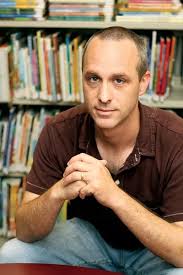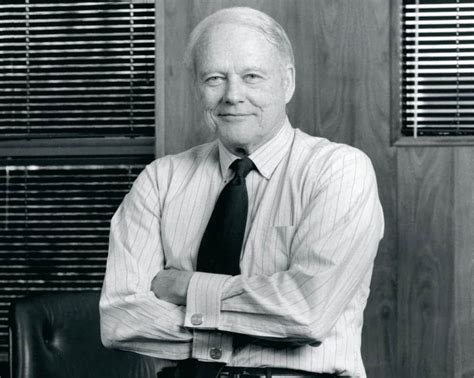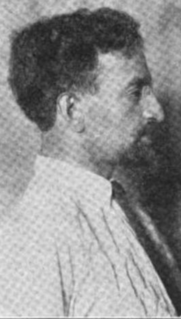A Quote by Arthur Conan Doyle
I said that he was my superior in observation and deduction. If the art of the detective began and ended in reasoning from an armchair, my brother would be the greatest criminal agent that ever lived. But he has no ambition and no energy. He will not even go out of his way to verify his own solutions, and would rather be considered wrong than take the trouble to prove himself right.
Related Quotes
And if someone felt that his life had been an utter failure, and that he himself was only one among millions of wholly unimportant people who could be replaced as easily as broken windowpanes, he would go and pour out his heart to Momo. And, even as he spoke, he would come to realize by some mysterious means that he was absolutely wrong: that there was only one person like himself in the whole world, and that, consequently, he mattered to the world in his own particular way. Such was Momo's talent for listening.
I would rather win souls than be the greatest king or emperor on earth; I would rather win souls than be the greatest general that ever commanded an army; I would rather win souls than be the greatest poet, or novelist, or literary man who ever walked the earth. My one ambition in life is to win as many as possible.
The market has a simple way of whittling all excessive pride and overblown egos down to size. After all, the whole idea is to be completely objective and recognize what the marketplace is telling you, rather than try to prove that the thing you said or did yesterday or six weeks ago was right. The fastest way to take a bath in the stock market or go broke is to try to prove that you are right and the market is wrong.
Must you go? I was rather hoping you'd stay and be a ministering angel, but if you must go, you must." "I'll stay," Will said a bit crossly, and threw himself down in the armchair Tessa had just vacated. "I can minister angelically." "None too convincingly. And you're not as pretty to look at as Tessa is," Jem said, closing his eyes as he leaned back against the pillow. "How rude. Many who have gazed upon me have compared the experience to gazing at the radiance of the sun." Jem still had his eyes closed. "If they mean it gives you a headache, they aren't wrong.
Then when dusk began to settle he would retrace his steps, back to his own world. And on the way home, a loneliness would always claim his heart. He could never quite get a grip on what it was. It just seemed that whatever lay waiting "out there" was all too vast, too overwhelming for him to possibly ever make a dent in.
He who lets the world, or his own portion of it, choose his plan of life for him, has no need of any other faculty than the ape-like one of imitation. He who chooses his plan for himself, employs all his faculties. He must use observation to see, reasoning and judgment to foresee, activity to gather materials for decision, discrimination to decide, and when he has decided, firmness and self-control to hold to his deliberate decision.
But what would have been the good?" Aslan said nothing. "You mean," said Lucy rather faintly, "that it would have turned out all right – somehow? But how? Please, Aslan! Am I not to know?" "To know what would have happened, child?" said Aslan. "No. Nobody is ever told that." "Oh dear," said Lucy. "But anyone can find out what will happen," said Aslan. "If you go back to the others now, and wake them up; and tell them you have seen me again; and that you must all get up at once and follow me – what will happen? There is only one way of finding out.
The little individualist, recognizing his individual impotence, realizing that he did not possess within himself even the basis of a moral judgement against his big brother, began to change his point of view. He no longer hoped to right all things by his individual efforts. He turned to the law, to the government, to the state.
If there were only some way of contriving that a state or an army should be made up of lovers and their beloved, they would be the very best governors of their own city, abstaining from all dishonour, and emulating one another in honour; and when fighting at each other's side, although a mere handful, they would overcome the world. For what lover would not choose rather to be seen by all mankind than by his beloved, either when abandoning his post or throwing away his arms? He would be ready to die a thousand deaths rather than endure this.
Either [Jesus] was what he said he was or he was the world's greatest liar. It is impossible for me to believe a liar or charlatan could have had the effect on mankind that he has had for 2000 years. We could ask, would even the greatest of liars carry his lie through the crucifixion, when a simple confession would have saved him? ... Did he allow us the choice... to believe in his teaching but reject his statements about his own identity?
Since the social victim has been oppressed by society, he comes to feel that his individual life will be improved more by changes in society than by his own initiative. Without realizing it, he makes society rather than himself the agent of change. The power he finds in his victimization may lead him to collective action against society, but it also encourages passivity within the sphere of his personal life.
The person in peak-experiences feels himself, more than other times, to be the responsible, active, creating center of his activities and of his perceptions. He feels more like a prime-mover, more self-determined (rather than caused, determined, helpless, dependent, passive, weak, bossed). He feels himself to be his own boss, fully responsible, fully volitional, with more "free-will" than at other times, master of his fate, an agent.
The essence of justice is mercy. Making a child suffer for wrong-doing is merciful to the child. There is no mercy in letting the child have its own will, plunging headlong to destruction with the bits in its mouth. There is no mercy to society nor to the criminal if the wrong is not repressed and the right vindicated. We injure the culprit who comes up to take his proper doom at the bar of justice, if we do not make him feel that he has done a wrong thing. We may deliver his body from the prison, but not at the expense of justice nor to his own injury.




































